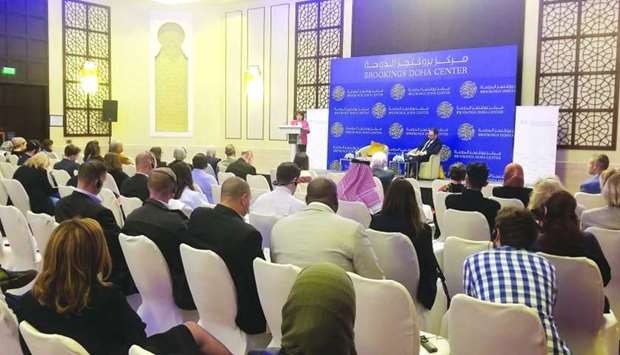The Brookings Doha Centre and the American Society of International Law co-organised a workshop titled “Innovation in Transitional Justice: Experiences from the Arab Region.”
Over 30 experts gathered to highlight existing achievements and innovations in the pursuit of transitional justice, and explore new ways of thinking about transitional justice amid ongoing conflict and authoritarianism in the Arab region. The workshop focused on eight countries: Algeria, Sudan, Egypt, Tunisia, Libya, Yemen, Syria, and Lebanon.
Commenting on the occasion Noha Aboueldahab, fellow at the Brookings Doha Centre, said: “With the wealth of experience the participants brought with them, I have no doubt that we have made some great headway in thinking about how to address these issues both from a research and policy perspective.”
Featuring six interactive sessions, participants offered their insight on a wide range of themes, such as: pursuing accountability during war and authoritarian rule, art and transitional justice, and transitional justice policy in Arab states.
The workshop is the second organised by Brookings Doha Centre on the topic of transitional justice in the Arab world. In October 2017, 18 experts from across the region convened in Doha to discuss challenges facing transitional justice in the region. This year’s iteration is an expansion of the previous workshop with the objective of developing the Arab transitional justice network of practitioners, policymakers, civil society, and scholars.
The Brookings Doha Centre also hosted Sihem Bensedrine, president of the Truth and Dignity Commission in Tunisia, who talked about her country's experience in implementing transitional justice. “The tasks of the Truth and Dignity Commission,” she said, “are to determine responsibility of committed violations and who should be held accountable, as well as to bring justice to the victims, and carry out reforms so that these violations do not recur.” She added: "All conditions must be met in transitional justice in order to achieve justice." The session was moderated by Nadim Houry, executive director of the Arab Reform Initiative.

